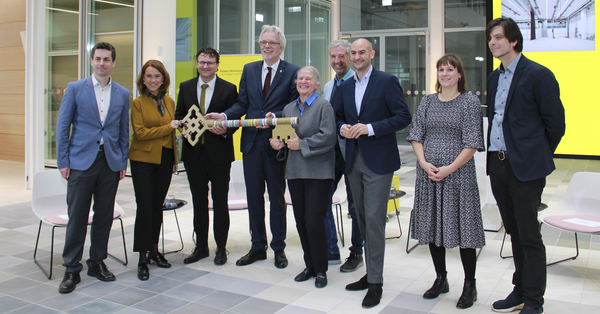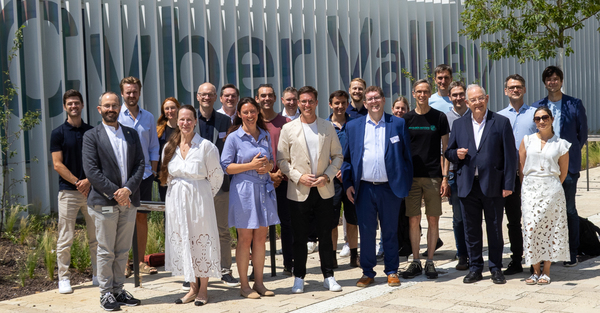Research team receives 1.5 million euros to develop algorithms that learn with child-like curiosity
The grant is part of a Volkswagen Foundation funding program that aims at establishing an interdisciplinary network of experts in the field of self-learning AI

The scientists first want to find out how children discover and learn to understand the world around them on the basis of their innate curiosity. In a second step, they will use their findings to develop mathematical routines based on human learning processes that could enable intelligent systems to develop childlike curiosity. The scientists will then test ways to equip robotic systems with these novel self-learning algorithms.
"Even the famous computer scientist Alan Turing believed that true artificial intelligence can only be achieved if you manage to build a machine that learns like a child," said Eric Schulz, leader of the Computational Principles of Intelligence Lab, an independent research group at the Max Planck Institute for Biological Cybernetics. "So far, however, little is known about how children spontaneously explore their environment and how this behavior can be applied to challenging tasks in robotics and machine learning."
An essential characteristic of human intelligence is the ability to systematically explore and understand one's own environment. In this context, exploration is not based on the traditional understanding of learning as the achievement of an externally imposed set of goals. Rather, children in particular act in a strongly self-motivated way and challenge themselves to learn or create something new again and again while playing.
"In order to master this scientific challenge, we need even more interdisciplinary collaboration than before. Researchers in developmental psychology often have problems translating their findings on self-motivated learning into suitable mathematical form, while computer scientists have insufficient knowledge about aspects of human psychology. In our project, we want to combine the knowledge of the different disciplines in a holistic approach to develop new methods and achieve new insights," says Georg Martius, leader of the independent Autonomous Learning research group at the Max Planck Institute for Intelligent Systems.
To this end, the researchers at the three Max Planck Institutes have decided to work together in interdisciplinary teams. Above all, the research project aims to deliver practical results that can either be immediately applied or further developed for computer science and AI applications. To ensure that the new findings can be quickly and fully transferred to science and application, all results and algorithmic codes will be made available to the general public via standard platforms, such as Github or OpenAI.
Related Articles



